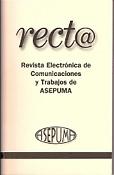La exclusión social en Murcia y España: El impacto de la crisis
Keywords:
Encuesta de condiciones de vida, AROPE, pobreza consistente, perfil exclusión socialAbstract
In this work we analyze the evolution of poverty, from a multidimensional point of view, in Spain and in the Region of Murcia during the economic crisis period. We also present an analysis of its principal socio-demographic characteristics. In order to do so, the information from the Survey of Relative Living Conditions is used for the period 2008-2012, being 2008 the year used as a reference for the levels before to the crisis. Firstly, the indicator proposed by the European Union in the frame of the Strategy Europe 2020 is checked (i.e. the rate of risk of poverty or social exclusion, AROPE), analyzing its evolution and the one of its three components: monetary poverty, severe material privation and low intensity of labor by home. Later, combining information about monetary poverty and material privation, the consistent poverty is obtained i.e. population who simultaneously is poor and suffers material privation in its living conditions and that, therefore, can be considered in clear risk of social exclusion. Finally, after showing the evolution of the rates of poverty in Spain and in the Region of Murcia between 2008 and 2012, the socioeconomic profile of poverty is described for both years, emphasizing the principal changes happened as a consequence of the crisis.
Downloads
Publication Facts
Reviewer profiles N/A
Author statements
Indexed in
-
—
- Academic society
- N/A
- Publisher
- UMA Editorial. Universidad de Málaga
Downloads
Published
How to Cite
Issue
Section
License

This work is licensed under a Creative Commons Attribution-NonCommercial 4.0 International License.





